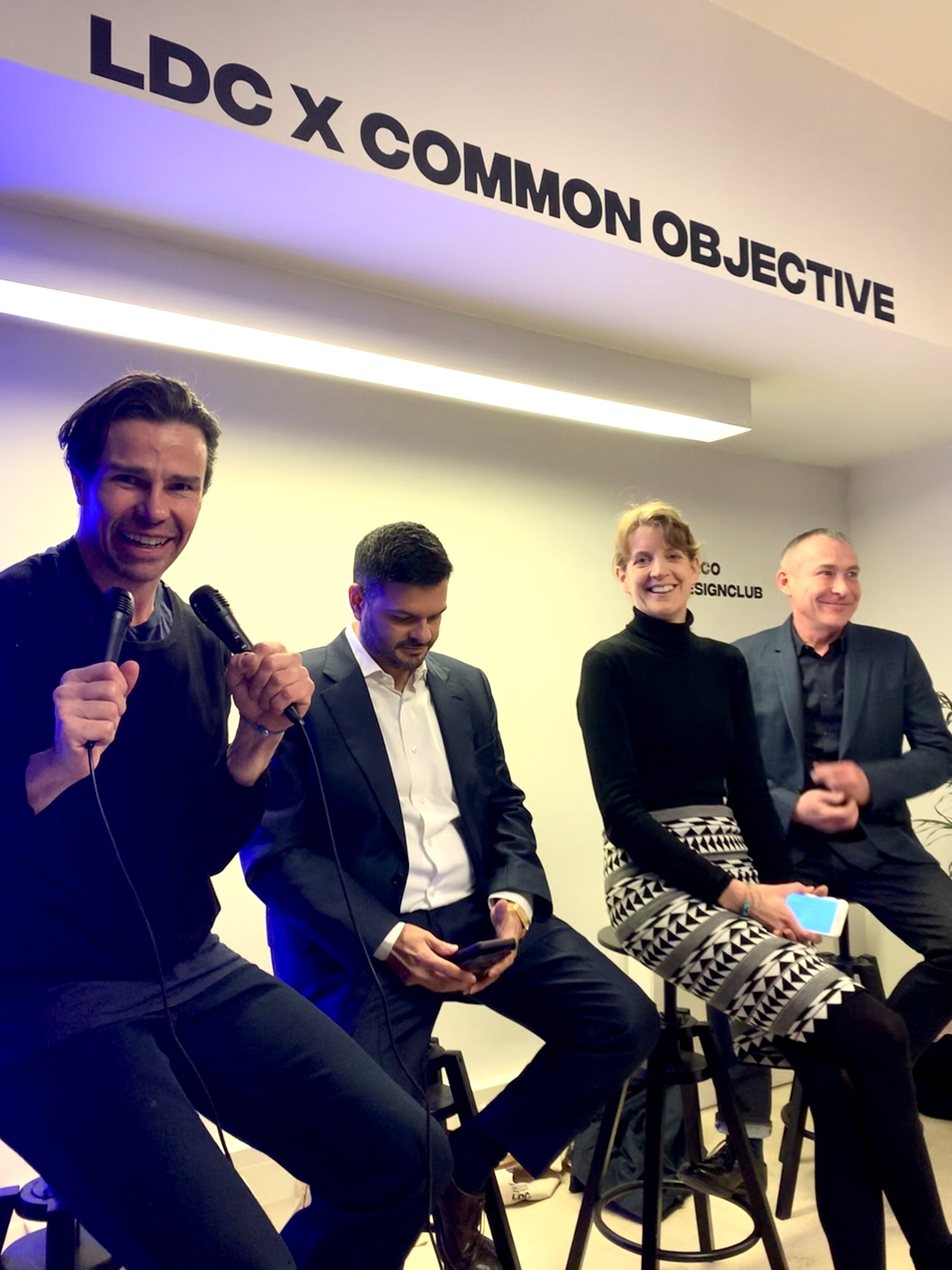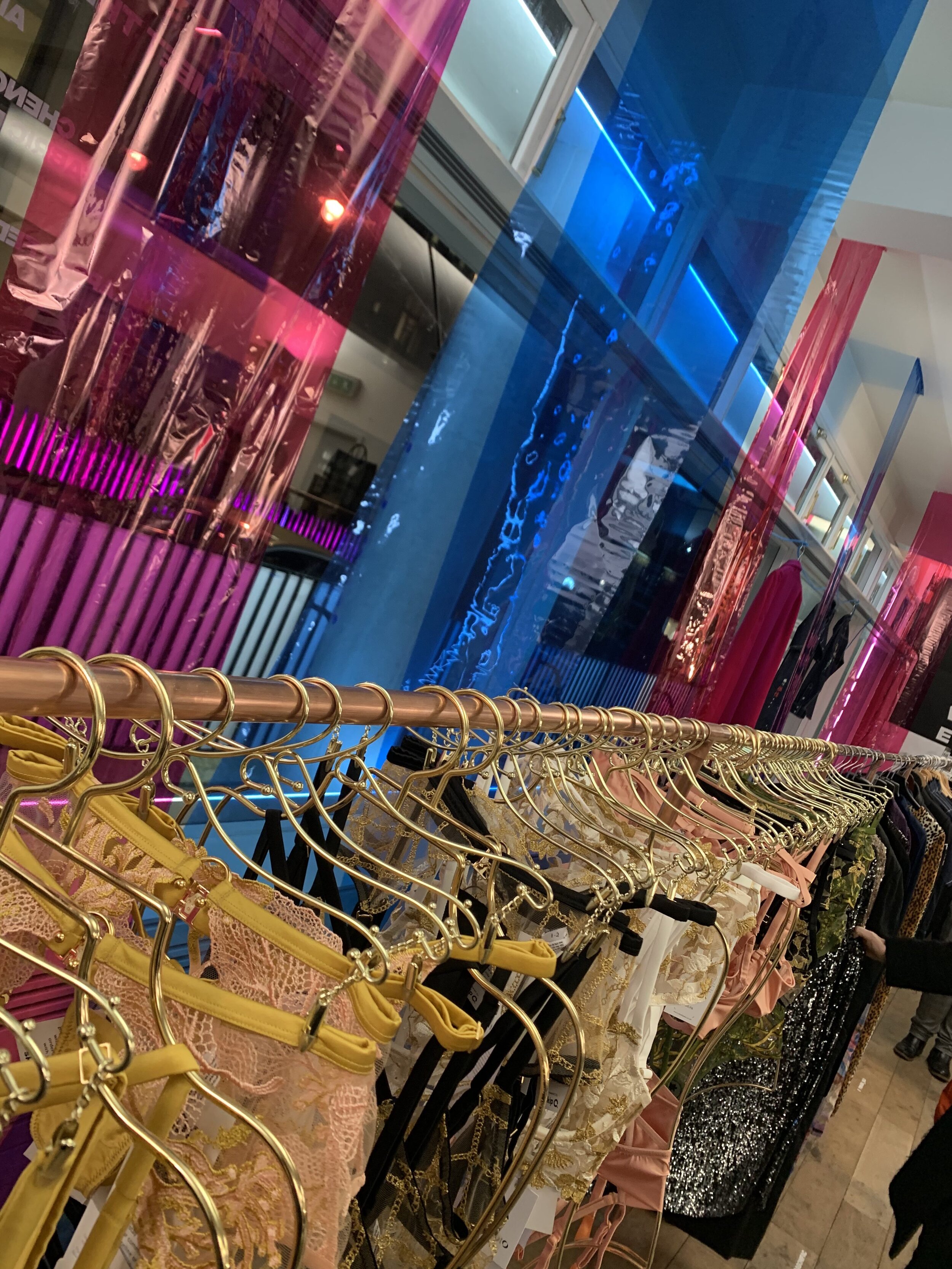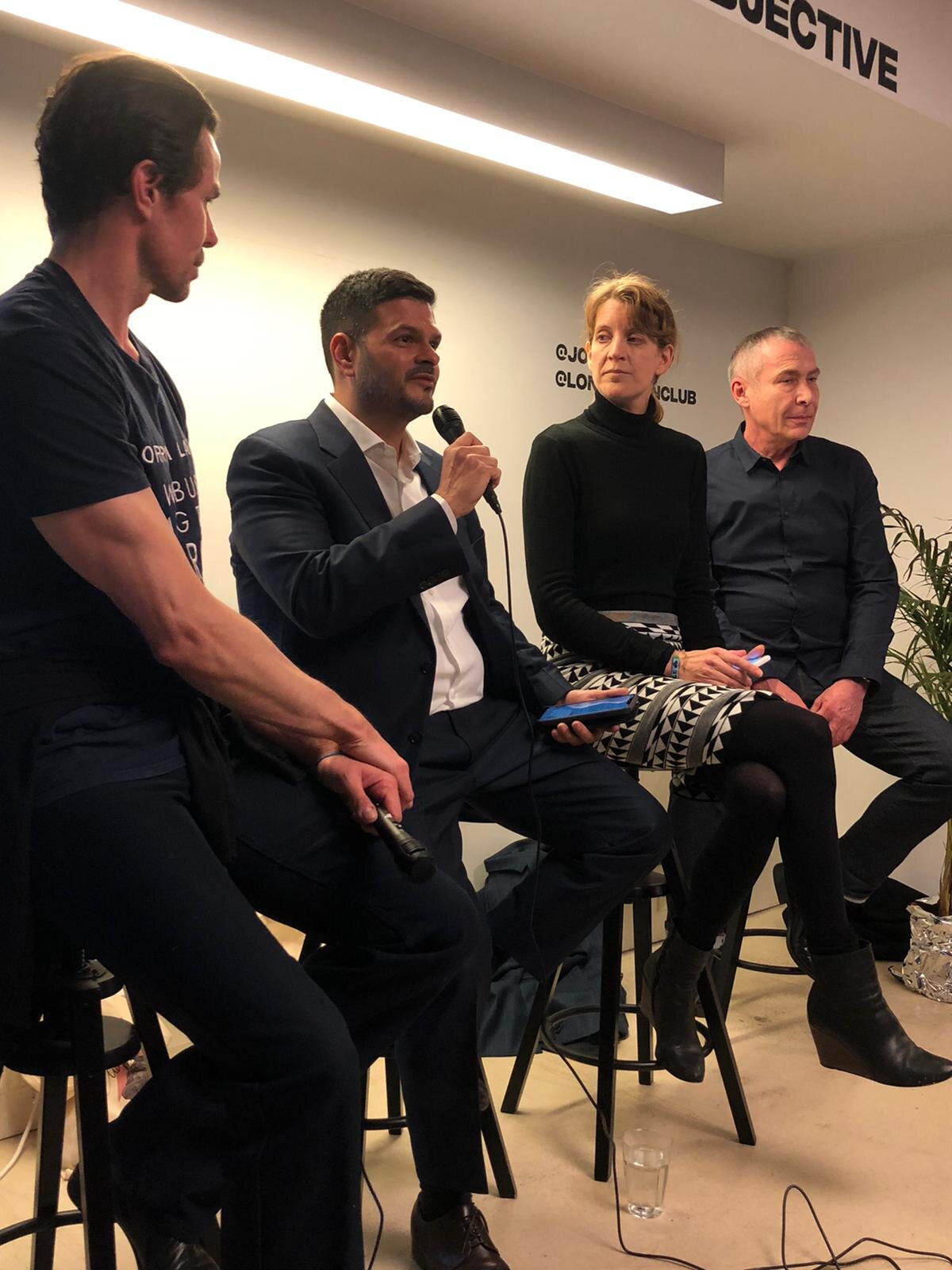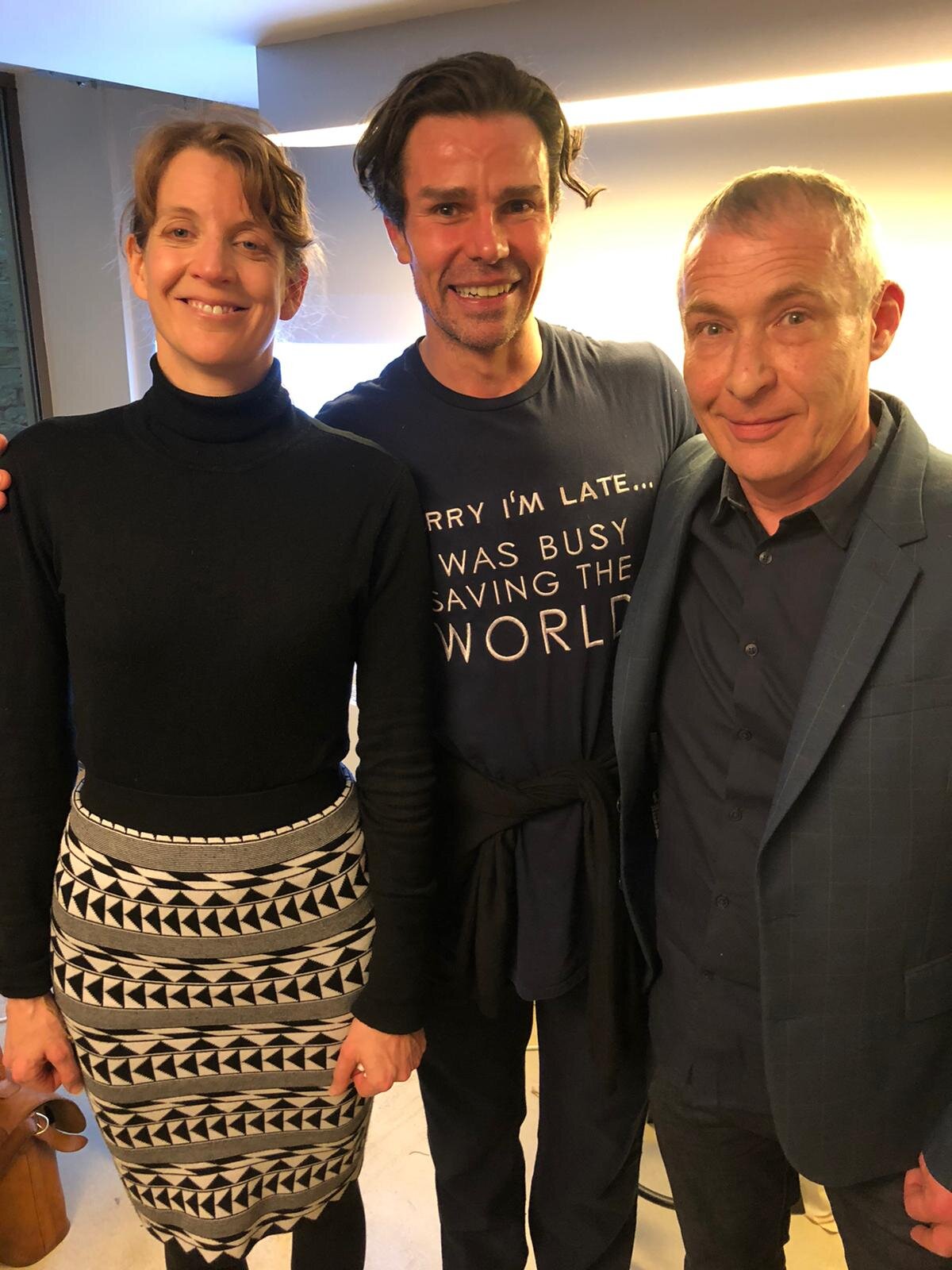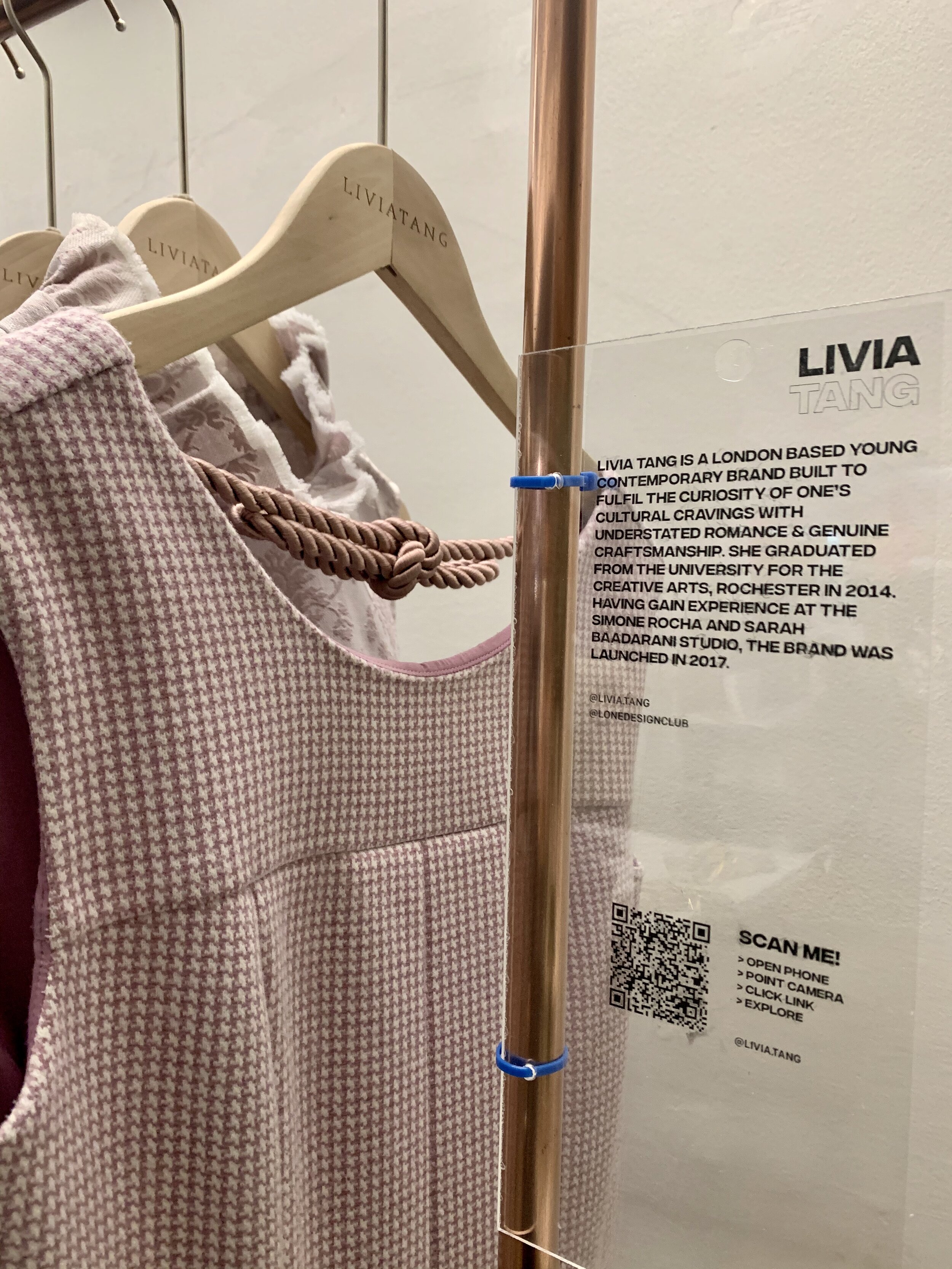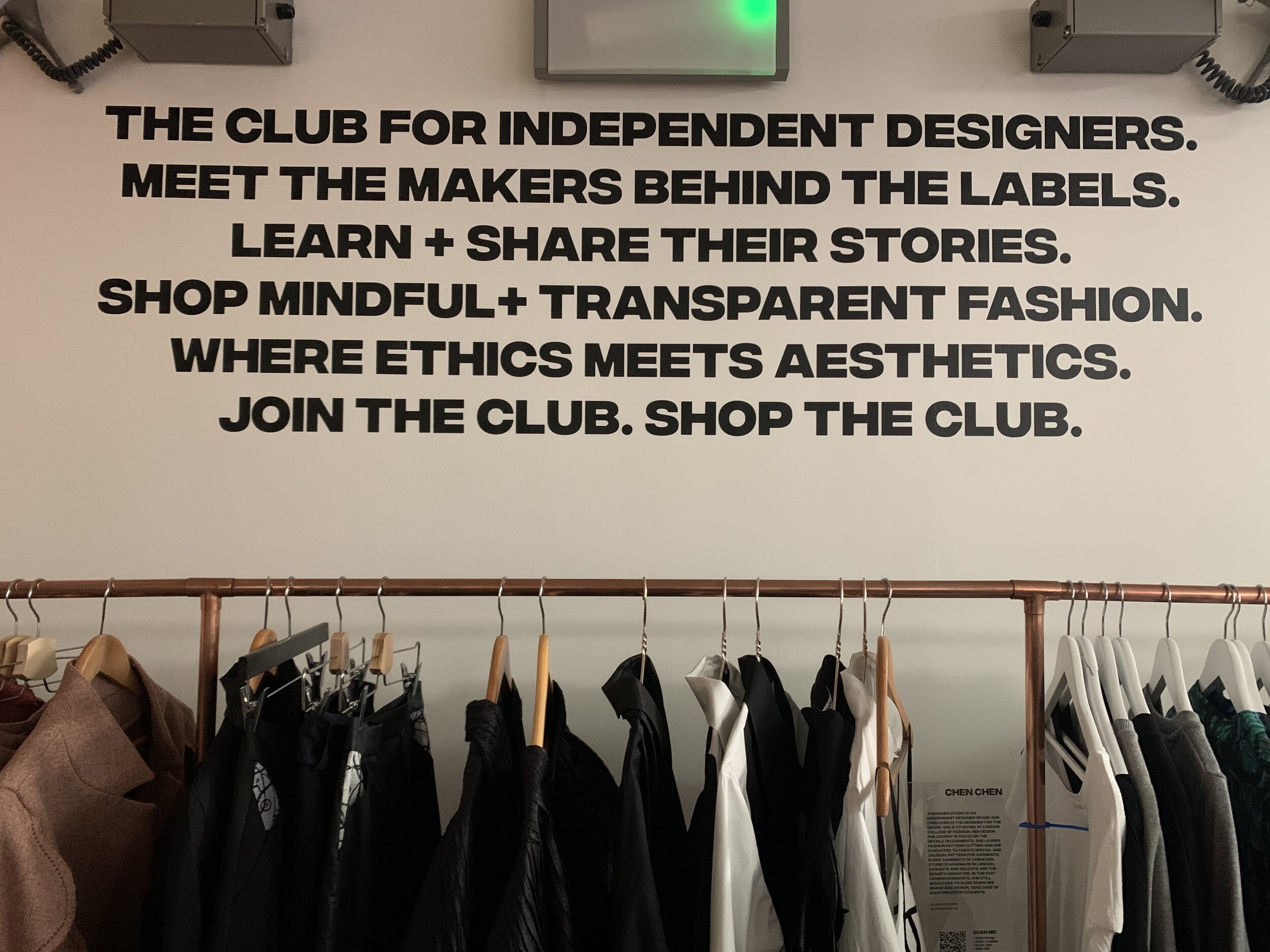6 Tactics for Scaling Sustainability in Fashion
Last night, we hosted a packed out event at Lone Design Club’s brand new pop-up store in Soho, London to celebrate the launch of our crowdfunding campaign and to discuss the topic of Scaling Sustainability in Fashion.
CO CEO Tamsin hosted her first all-male panel - a rare sighting at sustainable fashion events usually dominated by women. The panelists, bringing a range of experience from across the supply chain, included:
Patrick Duffy, Founder of Global Fashion Exchange;
Pallak Seth, Vice Chairman and CEO of PDS Multinational; and
Mark Langthorne, CEO of Roland Mouret.
Each of these experts has been scaling sustainability in their own inspiring ways for many years and they generously shared some of these insights with the audience. Here are some of the key themes from the evening:
Scaling Sustainability - 6 Tactics from the Experts
1. Make it fun
Patrick Duffy of Global Fashion Exchange, hailed as the ‘Swap King’, shared his story about how he used his experience in hospitality to bring a sense of fun to the sustainable fashion movement. “People like to move and get active - it makes them feel good” he said, “so we applied that to our swaps with music, dancing, and great hosting to get them involved.” And it has worked - GFX swaps are now happening in over 50 countries globally, and Patrick is world-renowned for his ability to positively amplify any sustainable fashion event or campaign.
2. Open source the solutions
At the other end of the supply chain, Pallak Seth of global supplier group PDS Multinational, talked about the power of collaboration to scale sustainability. PDS works with over 200 of the world’s biggest retailers globally and sees huge opportunity for the open sourcing of information and sustainability solutions to really accelerate change. Through a series of in-person events that PDS has co-hosted with Common Objective, we have been able to bring together senior leaders and decision makers from major fashion brands and retailers to exchange ideas and knowledge to bring about change faster than if they were to do it alone.
3. Dogged commitment
The third change-making member on the panel was Mark Langthorne, CEO of Roland Mouret (and previously CEO of Kanye West/Yeezy and who has also worked with Victoria Beckham). Whilst the Roland Mouret brand doesn’t shout from the rooftops about their sustainability accomplishments, Mark shared that the business is close to zero-waste and carbon neutrality. Their secret to shifting to sustainable practices? A militant and dogged attitude to doing the right thing it seems. “I can be pretty annoying” Mark admitted, “but this is an emergency, and if we don’t get frustrated about it and do something, who will?”
4. Get creative about business models
Whilst the panel agreed that simply stopping all purchasing could have negative impacts on those working in supply chains, Patrick inspired the audience to think about other ways to monetise and create value in businesses as he has done with his clothing swaps. Tamsin reinforced this idea highlighting that “fashion is an industry so rich in creatives - we can use this creativity for good and find new ways to make businesses both commercially successful and have a positive impact at the same time.”
5. Level the playing field
Of course the role of government in scaling sustainability was also considered. Pallak noted that it’s a ‘survival situation’ out there for most of the large retailers today - with customers being more fickle than ever, and changes in consuming patterns (such as buying experiences rather than product) impacting traditional retail. So it can be challenging for them to put sustainability at the top of the agenda when they’re struggling to stay afloat financially. However, common industry standards and regulation could really help to level the playing field, driving a shift in the way the entire industry operates.
6. Create a sense of urgency
From an environmental perspective, the Greta effect has certainly taken a hold of the conversation, and Mark encouraged the audience to embrace this sense of urgency. It is everyone’s responsibility - retailers, consumers, designers, government - and we must hold those to account that aren’t doing enough. Impatience and frustration can be real drivers for change if channelled in the right direction.
How CO can help drive change
We finished the discussion talking about the role that Common Objective can play in implementing these scaling tactics in the fashion industry and it was clear that relationships and collaboration are key.
Patrick noted that “this problem is too big for any one of us to solve alone, so having a platform like CO where we can create authentic relationships is so important.”
And as Pallak had highlighted earlier, “sharing solutions and ideas will speed up the pace of change in the industry… platforms like CO can become the LinkedIn for sustainability in the fashion industry.”
Mark was clear that CO was a place for fashion businesses to get access to a wealth of information that both raises awareness but also connects them with the practical solutions they need to make a positive change.
Join the CO Crowd
In a couple of weeks’ time, CO will be opening up the opportunity to its network to become co-owners in the business through a crowdfunding campaign with Crowdcube. From as little as £10, anyone can invest in CO, benefit from our success, and help shape the future of fashion.
Find out more about this opportunity and pre-register for early access to invest here.
A huge thanks to Lone Design Club for sharing their beautiful new Soho space with us. The pop-up is open from 11-24 February at 14-16 Great Pulteney St, Soho, London, W1F 9ND, and is filled with talented designers who are committed to ethical and sustainable practices.
And another big shout out to Foxhole Spirits for keeping our guests hydrated with their Hyke Gin, made from surplus high quality ingredients that would otherwise go to waste.

